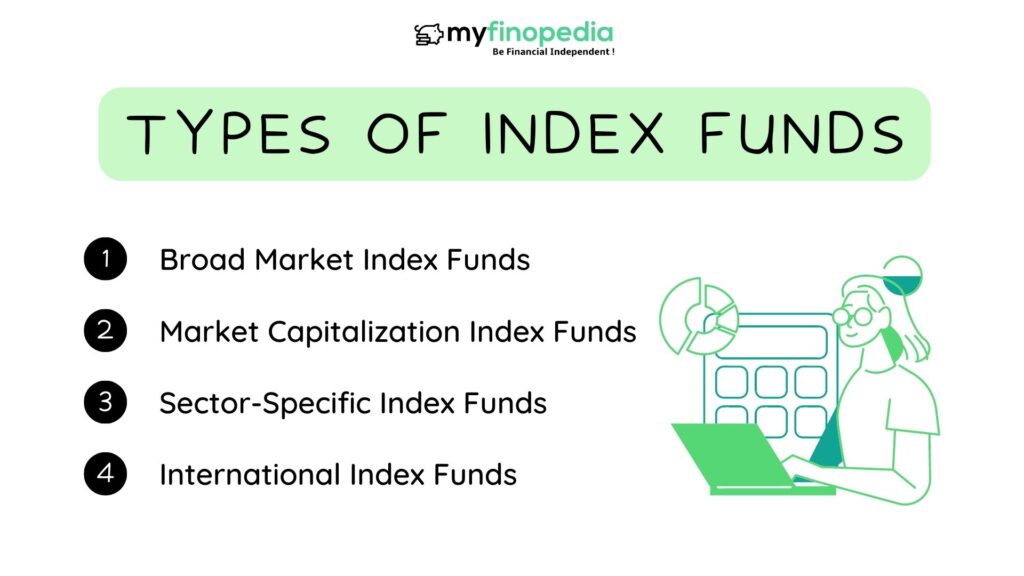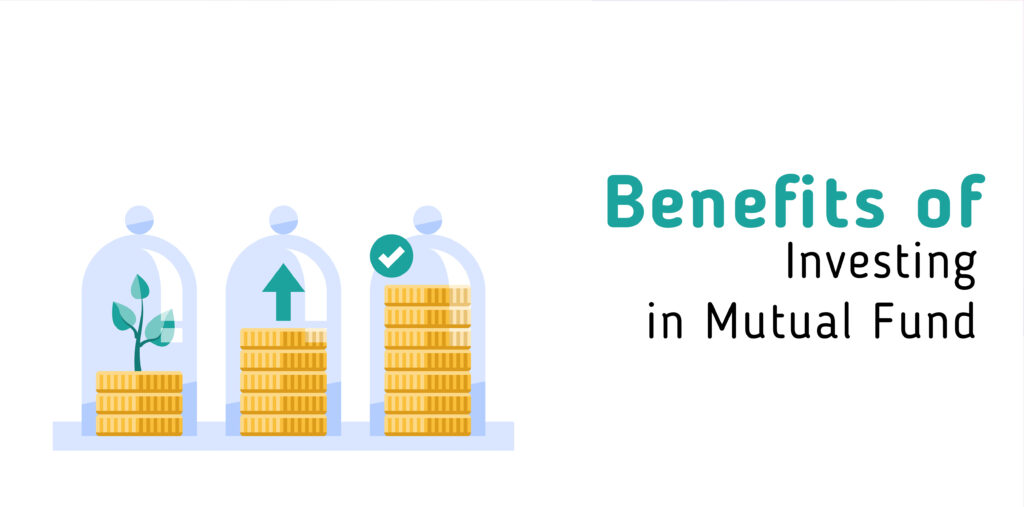An index fund is a term that means mimicking of a specific market index like S&P 500 to get a nearly greatest return by following the rhythm of the fund. The market usually follows through a diversified portfolio with a low and transparent cost that reflects the original index fund.
Based on the way of determining the portfolio of investors or risk profiles, index funds are classified in several ways. They are as follows:-
1. Broad Market Index Funds
In Broad Market Index Funds, the investment vehicles usually follow the broad Market indices like S&P 500 and Motilal Oswal NIFTY 500. They passively capture the total performance of a stock index and the weightings of the intended market index and expose it across different equity market sectors.
2. Market Capitalization Index Funds
Market Capitalization Index Fund or market cap index fund is calculated by multiplying a company’s stock price by the total number of outstanding shares. It tracks indices based on the market capitalization of the components. Mid-cap falls between large-cap and small-cap companies in terms of market capitalization. Large-cap market capitalization index funds offer stability and exposure to well-established industry leaders.
3. Sector-Specific Index Funds
Sector-Specific Index Fund denotes the particular index funds that concentrate solely on technology, healthcare, finance, and other sectors. It has a significant contribution to the enhancement of the growth prospects of a particular industry.
4. International Index Funds
International index funds track indices from global markets outside of a specific country. Its funds are usually composed of internationally renowned stocks, bonds, or other securities.
5. Real-Estate Index Funds
REITs or Real-estate index funds are property indices that provide exposure to real estate properties without the hassle of owning physical properties. So, one can invest in real estate properties without directly involving the concerned stocks.
6. Commodity Index Funds
Commodity Index Funds include the performance of commodities like gold, oil, agriculture, and others. The investment provides a hedge against inflation and diversification outside of traditional assets.
7. Factor-Based or Smart Beta Index Funds
The usual way to make an index is by looking at any company size However, other things like profits, dividends, and more can work better. Computers can learn from these details and group them into factors like value or quality.
8. Strategy Index Fund
It follows strategy indices built using quantitative models and investment plans. It watches over different assets like stocks and bonds and allocates weight based on their valuation using metrics like P/E or P/B ratio. It aims to provide a strategic investment method of choosing specific sectors rather than choosing every other individual sector.
9. Debt Index Funds
Debt index funds are those kinds of funds that invest in popular debt instruments like corporate bonds, government bonds, municipal bonds, etc. Retirement funds and fidelity funds are other investment funds that offer a variety of options in long-term investments of fixed-income bonds.
10. Custom Index Funds
Custom index funds are customised investment funds that provide investors with the liberty to choose between different sectors (like, medical, technological, artificial intelligence, social, or environmental) to include in their portfolio. This tailors their risk potential to mimic specific investment funds and improve the risk profile of the investors in different investment funds.
Benefits of Investing in Index Funds
- Diversification: Market Capitalisation index fund has diversification within a specific segment of the market. Thus, investors can choose funds that align with their risk tolerance and investment goals.
- Performance Tracking: By mirroring the performance of well-recognized indices, these funds offer a straightforward way to gain exposure to a particular market segment.
- Ease of Investment: Market capitalization index funds are passively managed index funds, that require less frequent adjustments and research compared to actively managed funds.
Considerations
There are several considerations while making investment in index funds in general. In all forms of investments, the indices are prone to several market risk as in the following:-
- Volatility in market changes and low-cost nature.
- Tracking error is one of the major problems of investment due to minor changes of poor replication of the mother fund.
- Concentration Risk amounts to disoriented results as it puts certain industries or sectors being dominated by the overconcentration of dominated by large companies.
Conclusion
Index funds provide an efficient way for investors to access the performance of various markets and sectors without the complexities of individual stock selection. By offering diversification, low costs, and passive approach, these funds become a popular choice for both novice and experienced investors seeking steady, long-term growth.






